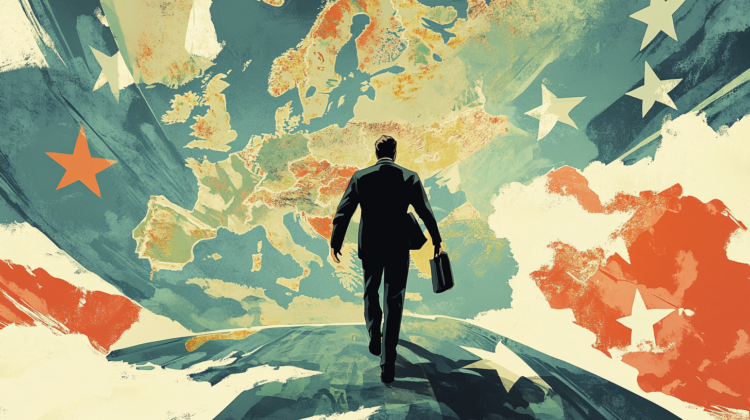Welcome to DU!
The truly grassroots left-of-center political community where regular people, not algorithms, drive the discussions and set the standards.
Join the community:
Create a free account
Support DU (and get rid of ads!):
Become a Star Member
Latest Breaking News
Editorials & Other Articles
General Discussion
The DU Lounge
All Forums
Issue Forums
Culture Forums
Alliance Forums
Region Forums
Support Forums
Help & Search
Europe's Challenge in a New Era of Shift and Shock

As Europe enters a new political cycle, the EU faces immense geopolitical and economic challenges in a multipolar world.
https://www.socialeurope.eu/europes-challenge-in-a-new-era-of-shift-and-shock

As the EU’s new political cycle, following the June 2024 European Parliament elections, kicks off with the launch of the second Von der Leyen Commission Presidency, the arrival of Antonio Costa as President of the European Council, and the Polish Government under Donald Tusk taking over the Presidency of the Council of Ministers, the EU faces both immediate and long-term challenges and dilemmas. The leadership team that emerged at the end of 2024 is a strong one, and the EU will need this team to work in a collaborative and cooperative manner to leverage influence. Together, they represent the collective EU.
The emerging 21st-century global order/disorder is not one that suits the EU’s DNA, its history or preferences. The EU is the world’s most robust multilateral institution, and its members have a pronounced preference for a rules-based international order in which trade is regulated and its security underpinned by the Transatlantic Alliance. The structural challenges facing the EU are both geo-political and geo-economic. Global power balances and authority structures are shifting in multiple unpredictable ways that do not favour the EU. The EU’s predominant power sources, both normative and regulatory, are insufficient and incomplete for the world in which Europe finds itself. The beginning of a second Trump presidency accentuates the EU’s challenges and dilemmas, as he will bring unpredictability, disruption, and an anti-EU bias to bear on transatlantic relations. Yet the EU is not destined to be a plaything and has the agency to be a player in this evolving global system. To do so, it must learn to navigate the emerging multipolar world and mobilise resources for collective action in key areas.
Playing into a Multipolar World
The bipolar world of the Cold War era gave way to a brief period of unipolarity when US power and projection surpassed that of any other state or group of states in the world. Today’s world is multipolar, as neither of the two large powers—the US or China—commands the power and influence to dictate the rules of the game in international politics. However, contemporary multipolarity is unbalanced, as these two states serve as strong poles of attraction, but there is also space for other powers to exert influence and project power. Middle powers, notably Russia, Iran, Turkey, India, Brazil, South Africa, and Japan, are on the rise. At this juncture, should the EU conclude that it is a middle power, or should it aspire to be a pole of attraction—not as powerful as either China or the US, but powerful nonetheless? If the EU aspires to be a global player, it should act as a pole of attraction in its neighbourhood and a hedge for other states faced with the two great powers.
The evolution of US-Sino relations under Trump will significantly influence how Europe navigates a multipolar world. The balance between competition and cooperation is critical for Europe. So too is the level of security or economic vulnerability to either power. The EU has long debated the question of strategic autonomy but must now decide on the actions it needs to take to move towards the future in a proactive strategic manner. There is a premium on agility and adaptability in a world of jockeying powers and unpredictable politics. The EU needs to be resolute with both major powers and be prepared to defend itself. The political agreement with Mercosur, concluded on December 6, 2024, is an exemplary instance of hedging US-Sino relations and strengthening multilateralism in the global system. The objections from European environmentalists and farmers may well derail the agreement, but this would be a major signal of European weakness.
snip